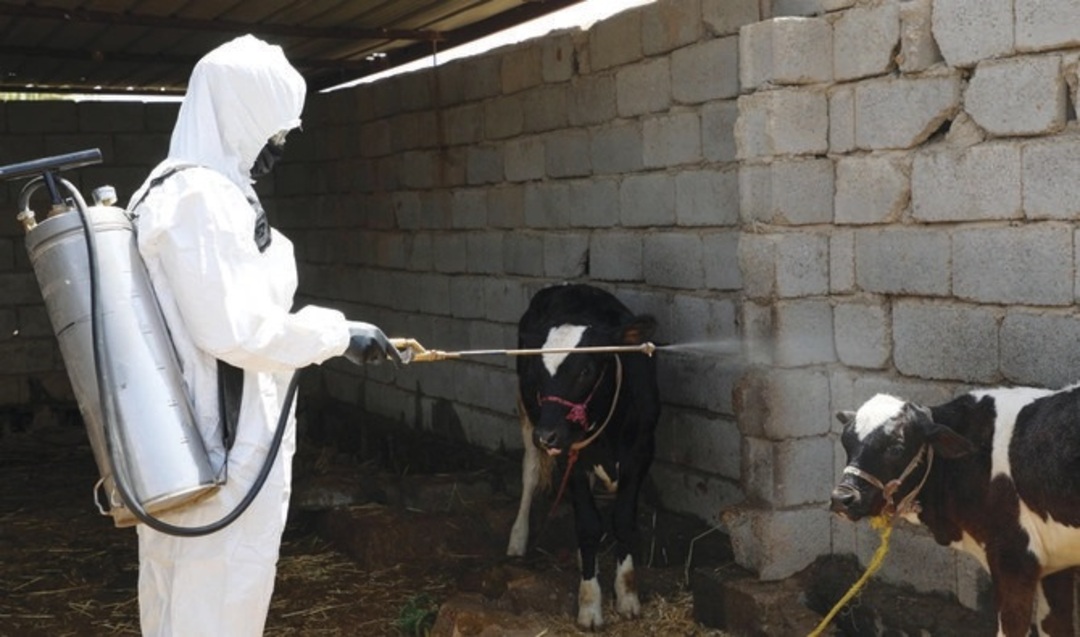-
Deadly nose-bleed fever shocks Iraq as cases increase

Iraqi health workers target blood-sucking ticks by spraying livestocks with pesticides at the heart of the country’s worst detected outbreak of a fever that causes people to bleed to death.
The sight of the health workers, dressed in full protective kit, is one that has become common in the Iraqi countryside, as the Crimean-Congo hemorrhagic fever spreads, jumping from animals to humans.
The virus has no vaccine and onset can be swift, causing severe bleeding both internally and externally and especially from the nose. It causes death in as many as two-fifths of cases, according to medics.
According to the Word Health Organization, this year, Iraq has recorded 19 deaths among 111 CCHF cases in humans.

Haidar Hantouche, a health official in Dhi Qar province, said: “The number of cases recorded is unprecedented."
A poor farming region in southern Iraq, the province accounts for nearly half of Iraq’s cases.
He added that in previous years, cases could be counted “on the fingers of one hand."
Key Iraq irrigation reservoir across Diyala province close to drying out
Transmitted by ticks, hosts of the virus include both wild and farmed animals such as buffalo, cattle, goats and sheep, all of which are common in Dhi Qar.
According to the World Health Organization: “Animals become infected by the bite of infected ticks. The CCHF virus is transmitted to people either by tick bites or through contact with infected animal blood or tissues during and immediately after slaughter,."
The surge of cases this year has shocked officials, since numbers far exceed recorded cases in the 43 years since the virus was first documented in Iraq in 1979.
Iraq sandstorm forces closure of airports, schools and public administrations
Hantouche said that in his province, only 16 cases resulting in seven deaths had been recorded in 2021. But this year Dhi Qar has recorded 43 cases, including eight deaths.
The WHO’s representative in Iraq, Ahmed Zouiten, said there were several “hypotheses” for the country’s outbreak. They included the spread of ticks in the absence of livestock spraying campaigns during Covid in 2020 and 2021.
He said that “very cautiously, we attribute part of this outbreak to global warming, which has lengthened the period of multiplication of ticks."
But “mortality seems to be declining,” he added, as Iraq had mounted a spraying campaign while new hospital treatments had shown “good results.”
Northern Iraq registers Congo fever death as infections spread
The WHO says, since the virus is “primarily transmitted” to people via ticks on livestock, most cases are among farmers, slaughterhouse workers and veterinarians.
It adde: “Human-to-human transmission can occur resulting from close contact with the blood, secretions, organs or other bodily fluids of infected persons."
Alongside uncontrolled bleeding, the virus causes intense fever and vomiting.
levantnews-arabnews
You May Also Like
Popular Posts
Caricature
opinion
Report
ads
Newsletter
Subscribe to our mailing list to get the new updates!






















